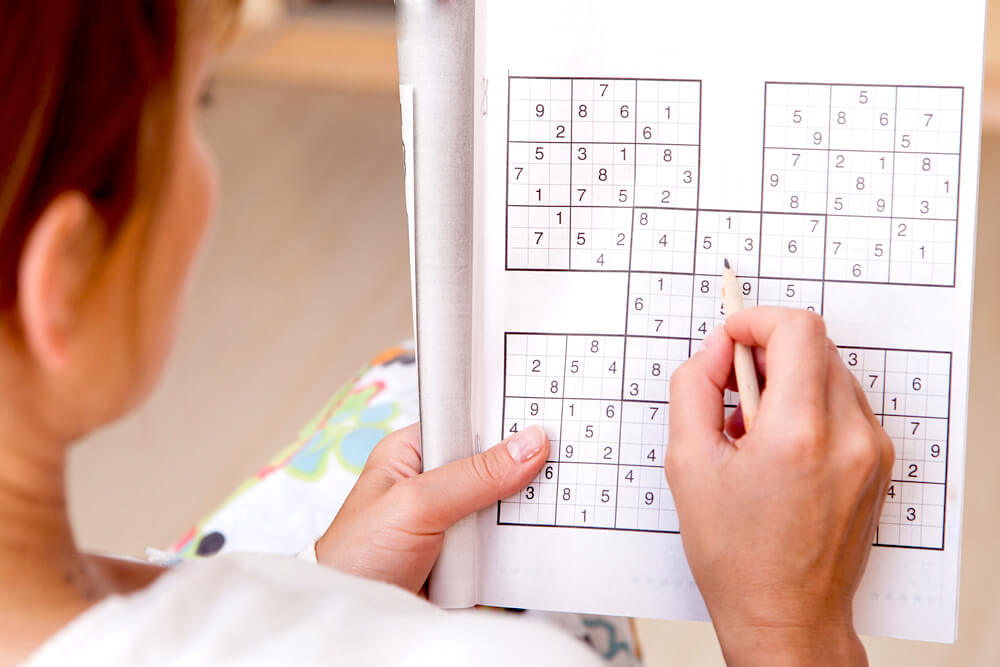Learning how to relax your mind is an essential life skill to have, especially in this day and age where stress is so abundant. Not only will this help to mentally rebalance you, but calming your mind will also give your brain a bit of a boost, resulting in higher creativity and productivity.
-
Listen to Some Music
Music can have quite the impact on your mind, with different genres of music having their own unique effects.
For those who need to reduce stress, studies have found that instrumental music can be extremely effective at relaxing the mind, especially Native American, Celtic and Indian tunes. Light jazz and classical music can also have this same effect, as can sounds of nature, such as rain and thunder.
If you need some help getting to sleep at night, try spending 45 minutes before bed in a relaxed, comfortable position, while listening to some calming music.
Alternatively, if you need some help lifting your mood, go for something lively and upbeat, as this can really help you to feel more positive.
Of course, singing along to music is also a great way to release tension while boosting your mood at the same time.
-
Snack on Some Calming Foods
Feeling anxious or worried can often lead to stress eating, which is the term used when someone eats to make themselves feel emotionally better, rather than eating because they are hungry.
When this happens, the foods that are eaten are often high in salt, sugar and other unhealthy ingredients that only end up making the stress feel so much worse.
In order to keep your mind feeling relaxed, try opting for one of these calming snacks instead:
- Walnuts – helps to regulate cortisol in the body, which is the stress hormone, as well as adrenaline
- Asparagus – contains enough folic acid to quickly boost the mood
- Oranges, Berries and Other Vitamin C-Rich Fruits – studies have shown that vitamin C can lower cortisol levels, while also lowering blood pressure
- Chamomile Tea – calms nerves and reduces symptoms of anxiety
- Dark Chocolate – maintains calmness in the body while lowering blood pressure
- Oatmeal – stimulates the brain to produce serotonin, which is a chemical that immediately lifts the mood
-
Give Meditation a Try
If you have been looking into different ways to relax your mind for a while now, then you will likely have already stumbled upon the recommendation of meditation.
So, have you given it a try yet?
Meditation is something that so many people do not fully believe in, dismissing it as something that would never work. However, science has now backed up some of the many calming benefits that meditation can bring.
To begin with, studies have found that meditation can reduce the symptoms of anxiety and depression in the same way that antidepressants can, and to the same extent as well. It can also trigger changes in the way in which the brain thinks about the self, which can really make such a difference to anxiety.
If you are not feeling anxious, but simply have trouble controlling your distracted mind, then meditation can help with this too. Research has shown that meditation can decrease the activity in the part of the brain that is responsible for your wandering mind, keeping you focused on the task at hand.
-
Write it Down
When your mind is racing with what seems like a million thoughts, writing it all down can really help.
How?
Firstly, the act of writing in itself is enough to engage the mind enough to slow it down a bit, while putting your thoughts down on paper helps to organize them, preventing everything from seeming so chaotic.

Want to give this a try?
Use a notebook if you prefer writing by hand, or create a special document on your computer if you prefer to type. Then, spend 15 minutes or so jotting down everything that happens to be in your mind.
This does not need to be in any particular order, so long as you are able to get all of your thoughts down.
Once you are done, put this aside for now. You can then return to it a bit later and really give everything your attention, once things are not so frenzied.
You will likely find that writing it all down makes you feel so much more in control of things, and helps to ease some of the stress taking place in your mind.
-
Get Moving
It has been proven countless times now that exercise is an extremely effective way to improve well-being, especially when done on a regular basis.
Wondering how it does this?
Firstly, exercise triggers changes in the brain’s neurotransmitters, the ones that are responsible for your mood. What makes this even better is that these changes are quite long-lasting, meaning that they will still be in effect hours after you are done exercising.
For those who are feeling a bit down about things, a 2006 study found that exercise can actually have similar effects to antidepressants in the way that it promotes the growth of new neurons in the brain, therefore alleviating depression and anxiety.
To make it even better, exercise that features repetitive motions, such as running, is actually classed as a meditative activity, and, for those who have a tough time calming their mind enough to fall asleep at night, exercise can help with this too, making it much easier to sleep each night.
-
Spend Some Time in Nature
Another easy way to quickly calm your mind is to simply step outside and head somewhere where there is plenty of natural beauty.
This is something that has been proven quite a few times, and there is a very interesting reason behind it…
Plants and trees release special chemicals that help to slow down the rate at which they decay, and these same chemicals can help to slow your mind down as well.
Studies have found that just a short walk in the woods, or anywhere else where there is plenty of nature, can significantly lower cortisol levels in the body, helping you to feel less anxious, while also boosting your memory at the same time.
-
Play a Game
Playing certain types of games, such as puzzles, can really help some people to relax their mind and lower stress levels.
How?
Well, due to the hectic nature of modern day life, many people end up feeling bored when they try to relax, as they have become accustomed to always having a certain level of stimuli in their life. Puzzle-type games can help with this, as they do still provide a mental challenge, but not too much, meaning that they are able to still pull people into a state of mindfulness.
Puzzle games also trigger the brain to produce more dopamine. This is a neurotransmitter that helps to improve the mood and balance out brain chemistry, keeping you in a state of relaxation.
Wondering which games you should be playing?
Give one of these a try:
-
- Sudoku
- Crossword puzzles
- Wordsearches
- Brain-teasers and riddles
- Electronic puzzle games, such as Bejeweled
- Jigsaw puzzles

-
Make Sure You Are Getting Enough Sleep
Sleep is essential for your well-being, and this not only refers to the number of hours that you sleep for, but also the quality of sleep that you generally have.
Wondering how much sleep you need each night?
Eight hours is what the average person needs, but many people do not end up getting this amount, often due to an over-active and stressed out mind.
If you can relate to this, then there are a few steps that you can take to help your mind and body to unwind before bed, so that you fall asleep quickly and easily:
-
- Spend an hour before bed relaxing your mind, keeping away from your TV, computer, phone, or any other electronic devices
- Develop a pre-bedtime routine that promotes relaxation. This can include a warm bath, a good book and some calming music
- Drink a cup of chamomile tea before bed, as this helps to induce sleep
- Make sure that you are wearing comfortable clothes
- Try a breathing exercise while lying in bed
- Develop a regular sleep schedule that you stick to on weekends as well as weekdays
-
Stop Multi-Tasking
While it may often feel as though you are getting more things done by multi-tasking, this may sometimes not be the case. By having so many different distractions, your mind will end up scattered, and you will actually not be very productive in the end.
One key to keeping your mind relaxed, calm and focussed is to only concentrate on a single task at a time.
Do you find it difficult to do this?
Try making a list at the beginning of each day, writing down all of the tasks that you need to accomplish that day. Then, prioritize the tasks, and tackle them one by one, starting with the most important and working your way down.
In addition to only working on one task at a time, you should also try to stop multi-tasking in other ways. For example, you are likely to be regularly checking your phone, or your emails, while you are doing something else. Try to put a stop to this, so that you really are completely present in the task that you are currently doing.
-
De-Clutter Your Environment
While having some clutter in your home or at work may not seem like that big of a deal, research has shown that clutter can actually have quite the impact on the way in which your brain processes information.
In the same way that multi-tasking can impair your ability to properly concentrate, having too much clutter will end up overloading your senses, leaving you feeling overwhelmed, anxious, and drained of mental energy.
The brain actually finds organization much easier to deal with, meaning that when you enter a de-cluttered space, your brain will not have to work so hard, which will have you feeling far calmer.
You’re probably thinking…
“That all sounds great, but how do I actually get started with de-cluttering?”
Begin with a small part of your home, even if this is just a single drawer in your dresser.
Take all of your belongings out and then sort them into the following piles:
- Keep – these are the items that you often use
- Sell – items that you do not use, but could be worth some money
- Give Away – items that you can donate to charity
- Trash or Recycle – items that would be of no use to anyone
Once you have organized a small part of your home, move on to the next, allocating yourself an area of your home to de-clutter each evening, or even each week.

Before you know it, your home will be de-cluttered. You can then take this principle and apply it to other areas of your life that need de-cluttering, such as your office or your car.
-
Ensure That You Are Having Enough Social Contact
Social contact is such an important part of keeping the mind and spirit relaxed and happy, but, as a person becomes older and more stressed, this is an area of life that often ends up being neglected.
Having friends that you can talk to can really help to keep you calm, in a number of ways:
-
- Talking to a friend about a problem can lower cortisol levels in the body
- Having close friends tends to make people healthier in terms of diet and exercise, both of which will help keep your mind calm
- Laughing on a regular basis can reduce stress and improve your mood
If you know that you have been neglecting the social side of your life a bit lately, then this is something that needs to change. Try setting aside a chunk of time each week that you dedicate to spending with friends, even if this may just be a quick drink after work.













 Improves Mood
Improves Mood
 So, what are the foods that should absolutely be in your diet plan?
So, what are the foods that should absolutely be in your diet plan?